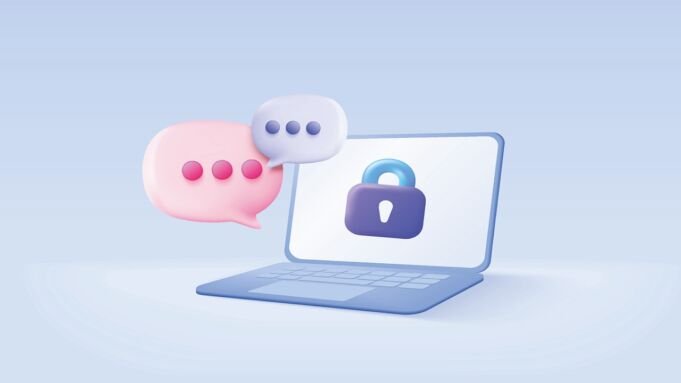In an age where digital connectivity is as essential as your passport, safeguarding personal information while traveling has never been more crucial. Virtual Private Networks (VPNs) stand out as a vital tool for travelers seeking to protect their digital footprint.
This article delves into the significance of VPNs in ensuring digital security abroad, highlighting the risks involved and the comprehensive protection VPNs offer.
What is a VPN and How Does it Work?
A VPN creates a secure, encrypted connection between your device and the internet, ensuring that your online activities are private and secure. It routes your internet traffic through a remote server, masking your IP address and encrypting your data. This prevents third parties from intercepting or tracking your online activities, ensuring a secure and private browsing experience.
Choosing the Right VPN Service
Selecting an appropriate VPN service is key to effective digital protection. Essential features include robust encryption standards, a wide selection of server locations, and fast connection speeds. Researching reputable VPN providers and ensuring device compatibility is also crucial. Recommendations from cybersecurity experts can guide you toward reliable services that prioritize user privacy and security.
Among the myriad of options available, Surfshark VPN stands out due to its exceptional features and reliability. With Surfshark, you gain access to advanced encryption, ensuring your online activities remain confidential. Its user-friendly interface and vast network of servers across the globe offer seamless access to geo-restricted content while maintaining high-speed connectivity. If you want to know more you can learn more about Surfshark VPN.
How to use a VPN to Book Cheaper Flights?
Using a VPN to book cheaper flights is a savvy travel hack that leverages the principle of geo-based pricing. By masking your IP address, a VPN allows you to appear as though you’re browsing from different locations around the world. Start by selecting a reliable VPN service and connect to a server in a country with a lower cost of living or where the demand for flights is typically lower. Clear your browser’s cookies and cache to ensure airlines don’t use your past searches against you.
Then, visit airline or travel aggregator websites to compare prices from various locations. This method can unveil significant savings, as airlines often offer different prices based on the user’s perceived location. Remember, patience and persistence in trying different server locations can lead to finding the best deal on your next flight.
Risks to Personal Information While Abroad
When you travel, your digital security is exposed to several vulnerabilities. Public Wi-Fi, available at airports, hotels, and cafes, is a prime target for cybercriminals. Travelers can also face targeted attacks, including phishing scams tailored to tourists. Furthermore, legal surveillance and data collection efforts by some foreign governments can infringe on your privacy. Additionally, travelers often encounter geo-restrictions and censorship, limiting access to content and services from home.
How VPNs Enhance Security and Privacy?
VPNs encrypt your internet connection, creating a secure tunnel for your data. This encryption shields your activities from prying eyes, even on unsecured public Wi-Fi networks. By masking your IP address, VPNs prevent websites and services from pinpointing your location, further enhancing your anonymity. This capability is crucial for accessing geo-restricted content safely and maintaining privacy from potential surveillance.
Benefits of Using a VPN While Traveling
Beyond security, VPNs offer several other advantages for international travelers. They enable you to bypass government censorship in restrictive countries, ensuring access to the open internet. VPNs can also help avoid price discrimination by travel and accommodation websites, potentially leading to significant savings. Secure access to personal and work accounts without the risk of interception is another benefit, as is the ability to stream geo-blocked entertainment and media from back home.
Best Practices for Using VPNs Abroad
To maximize the benefits of a VPN, always connect to your VPN service before accessing the internet. Keeping your VPN and other software updated is vital for closing security loopholes. Additionally, practicing general digital hygiene, such as using secure browsers and avoiding suspicious downloads, complements a VPN’s protection.
Legal and Ethical Considerations
Before using a VPN abroad, it’s important to know the destination country’s laws regarding VPN use. While VPNs are legal in many parts of the world, some countries have restrictions or outright bans. Ethical considerations, such as respecting copyright laws, should also guide your VPN usage.
Conclusion
As digital threats continue to evolve, the role of VPNs in protecting personal information while traveling becomes increasingly important. By encrypting your connection and offering a secure gateway to the internet, VPNs provide a robust defense against a myriad of cyber threats. As you plan your next international journey, consider a VPN an essential component of your travel toolkit, ensuring that your personal information remains secure, no matter where your travels take you.







![What to Wear When Hiking in Summer [Stay Cool and Comfy] What to Wear When Hiking in Summer](https://tourinplanet.com/wp-content/uploads/2023/10/What-to-Wear-When-Hiking-in-Summer-238x178.jpg)


![What Does Aviates Stand for in Aviation? [The Art of Flying] Aviates](https://tourinplanet.com/wp-content/uploads/2024/07/Aviates-100x75.jpg)














![25 Best Peruvian Foods You Must Try In Peru [With Recipes] Peruvian Food](https://tourinplanet.com/wp-content/uploads/2024/07/Peruvian-Food-100x75.jpg)


